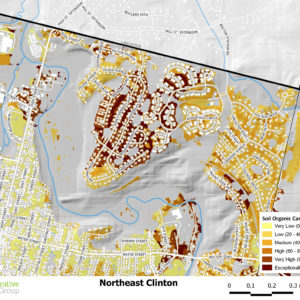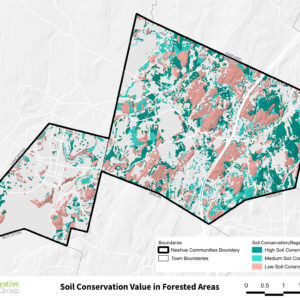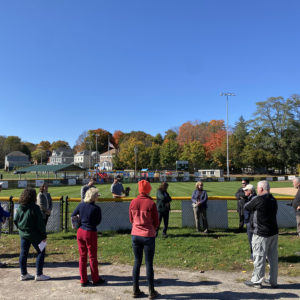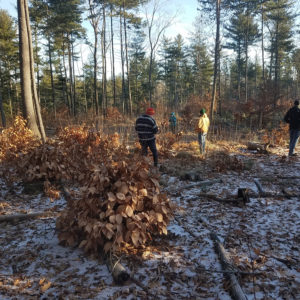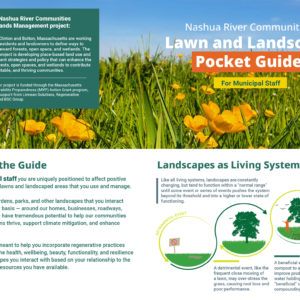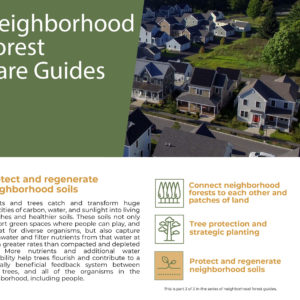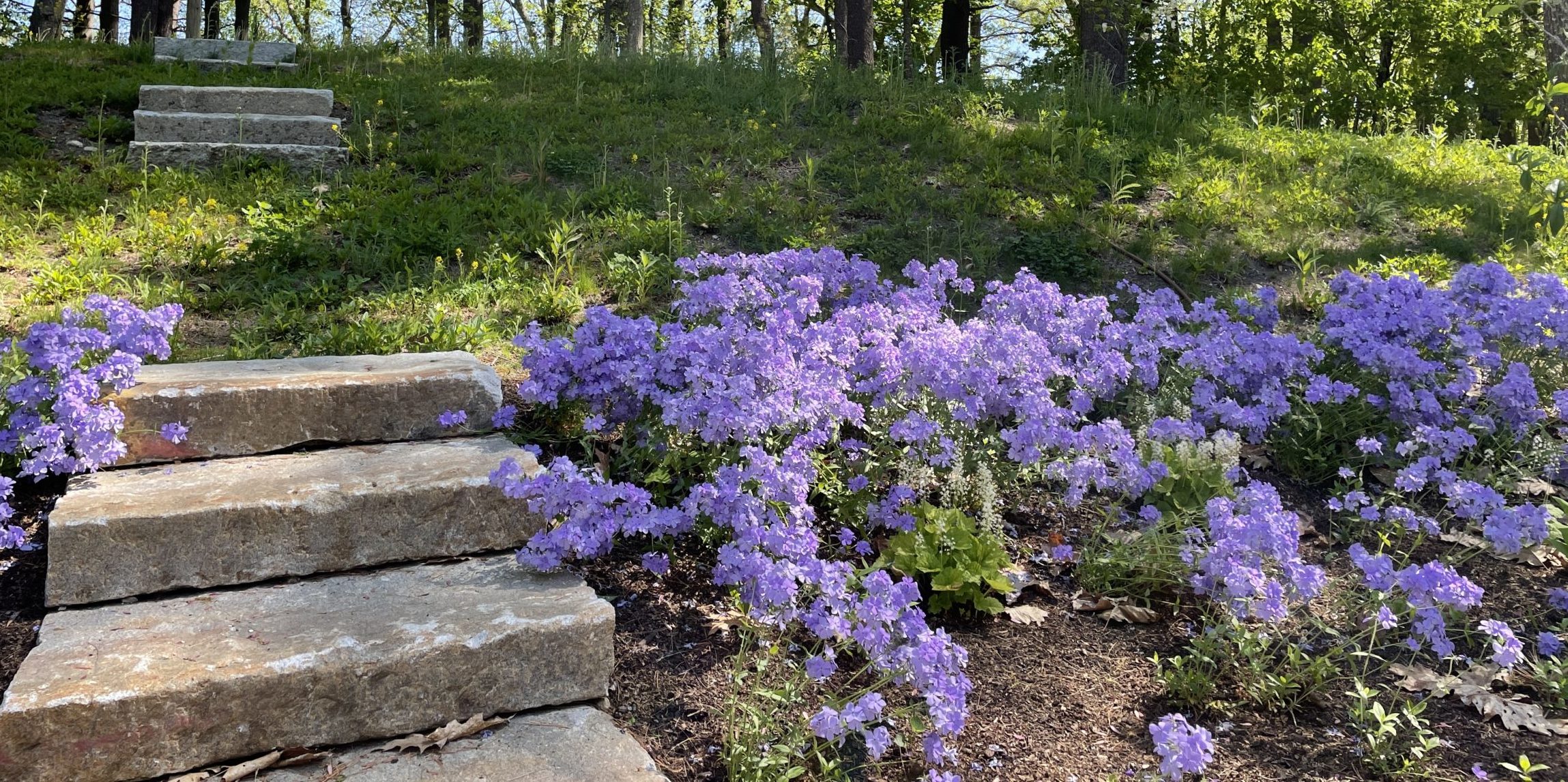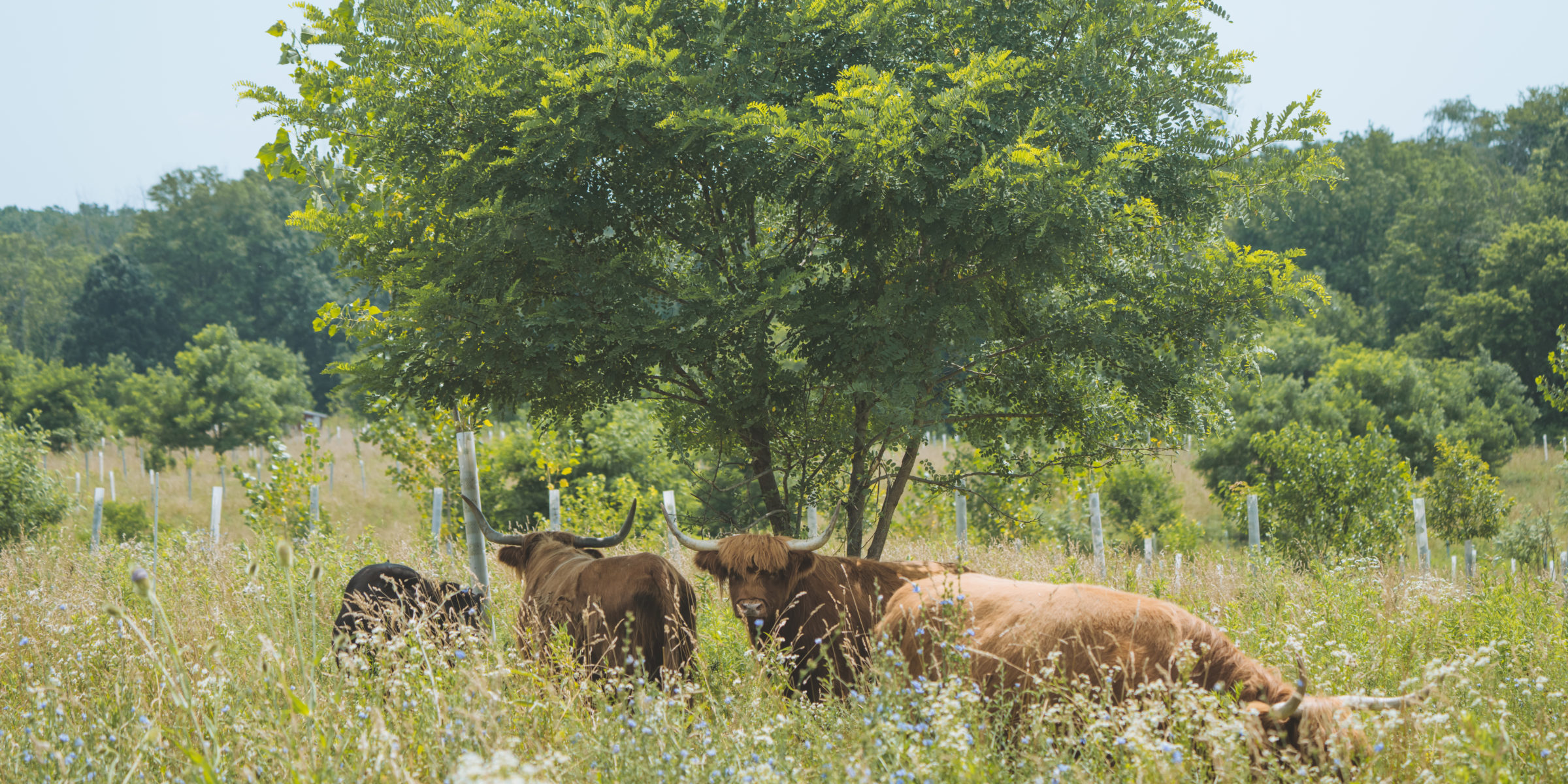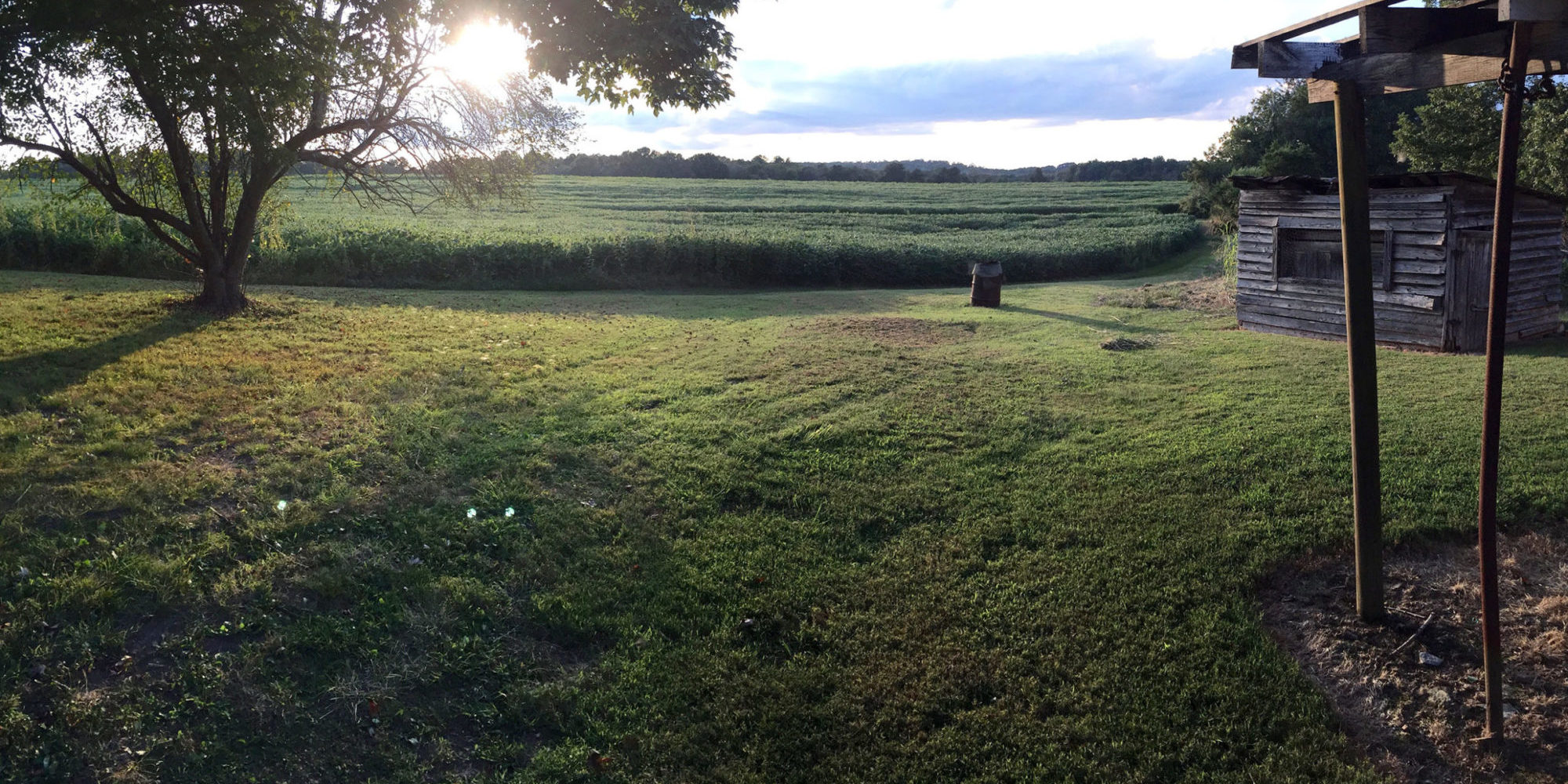Land use and land management strategies to enhance the resiliency of forests, open spaces, and wetlands.
Clinton + Bolton, MA
Clinton and Bolton, like so many communities in the Northeast, are already experiencing a host of challenges brought about by climate change. With increased extreme stormwater events and intense summer heat, the towns are looking for ways to adapt. In June 2023 of this year, we completed a two year project to recommend land-based policies and practices to support resilience and regeneration in the coming decades.
Clinton and Bolton contrast sharply in their size, demographics, and landscape character. Bolton is a largely rural community with major acreages of forests and wetlands, while Clinton is a more compact, highly-developed old mill town. These differences informed the two main phases of this project: year one focused on forests and wetlands and year two focused on turf and ornamental landscapes. As part of the relationship building process, two task groups were formed: a Forest Task Group and a Lawns and Landscapes Task Group. Each group contributed to the project’s foundational goals and principles and assessed the lived realities of important sites within each town.
Outcomes of this process included land management guides, model wetland bylaws and regulations, and a framework for ongoing community participation in decisions that affect the integrity of these ecosystems. The resulting materials were produced in collaboration with Linnean Solutions, BSC group, and a variety of stakeholders within the two towns. This project was funded through the Massachusetts Municipal Vulnerability Preparedness (MVP) Action Grant program, and implements recommendations from the Apple Country Natural Climate Solutions Project.
Full project story, stewardship guides, and bylaw recommendations can be found HERE.
GUIDING PRINCIPLES OF FOREST STEWARDSHIP
- Learn by Observing and Interacting: Forests as Teachers
- See the Forests and the Trees: Forests as Nested Living Systems
- Participate in Reciprocal Relationships: Forests as Partners
- Encourage Diversity and Connectivity: Forests as Connections and Intersections
- Focus on Function for Resilience: Forests as Dynamic Forces
- Encourage Taking the Long View to Evaluate Success: Forests as Legacies
GUIDING PRINCIPLES OF LAWN & LANDSCAPE STEWARDSHIP
- Health and well-being
- Interdependence
- Reciprocal relationships
- Accessibility
- Curiosity
- Valuing the small
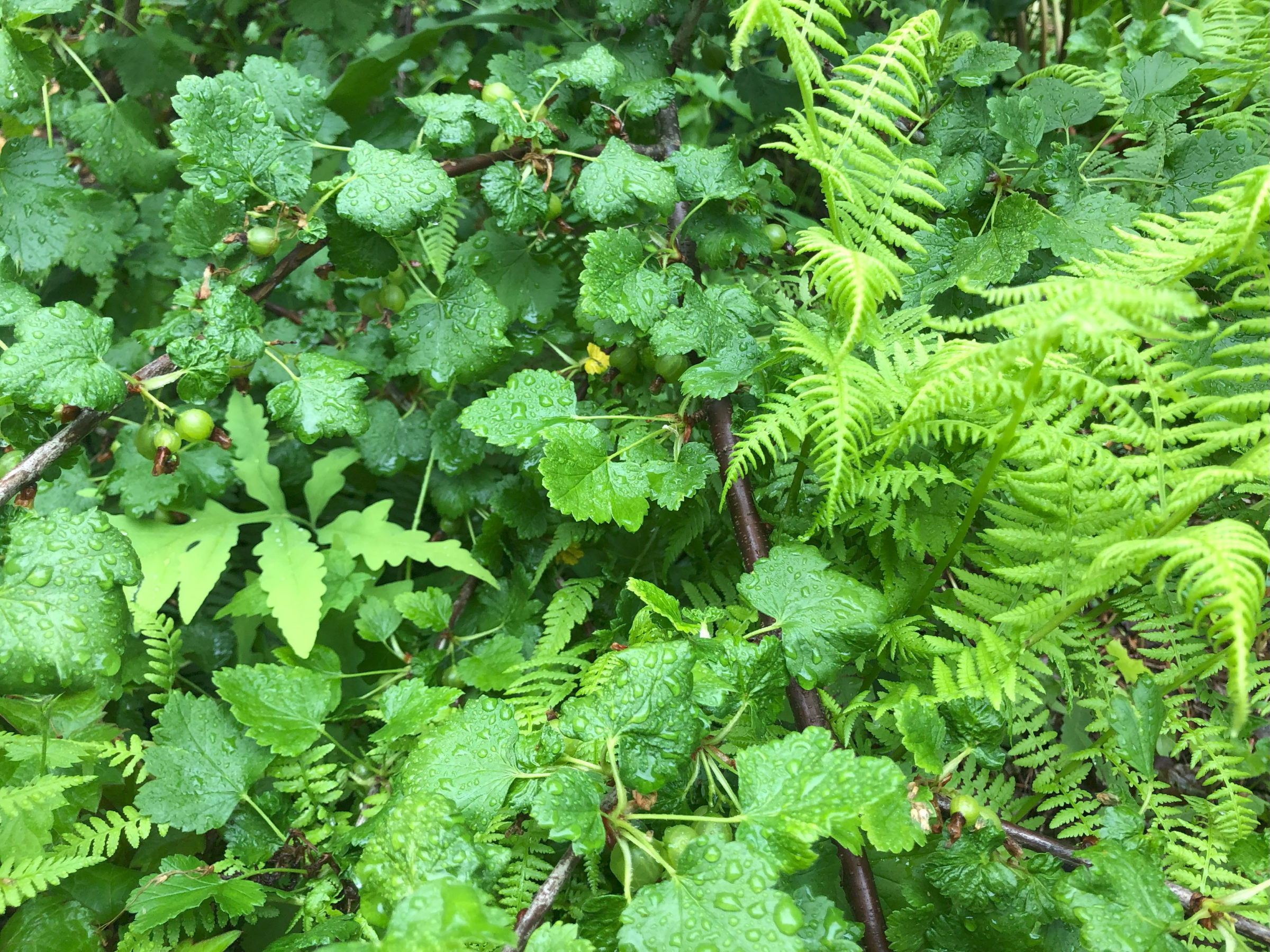
“The Climate-Smart Development Regulatory Prioritization Tool is a set of recommendations for regulatory updates that support the integrity and continued viability of our landscapes before, during, and after development. It evaluates how Clinton and Bolton’s existing regulatory landscape currently supports community climate resilience and ecosystem health; and identifies opportunities to update and strengthen regulations to reduce carbon emissions, increase climate resilience, encourage sustainable and equitable development, and strengthen ecosystems while engaging whole communities in creating climate solutions..”
From the Climate Smart Development Bylaws Prioritization Tool

